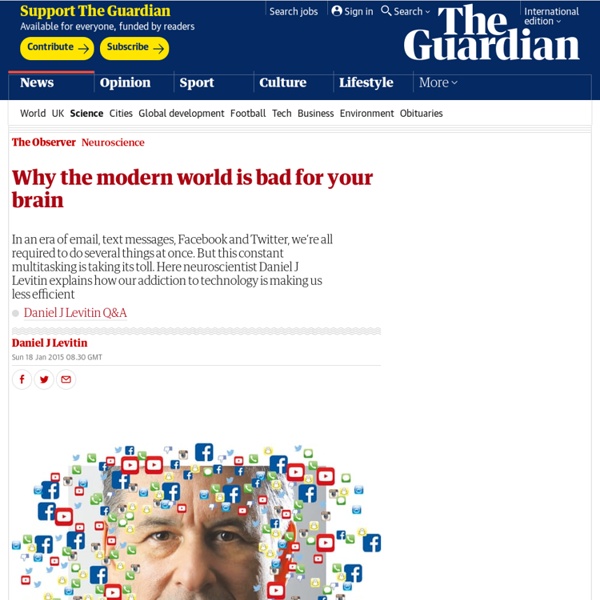Humans Have a Lot More Than Five Senses
Today I found out humans have a lot more than five senses. It turns out, there are at least nine senses and most researchers think there are more like twenty-one or so. Just for reference, the commonly held definition of a “sense” is “any system that consists of a group of sensory cell types that respond to a specific physical phenomenon and that corresponds to a particular group of regions within the brain where the signals are received and interpreted.” The commonly held human senses are as follows: Sight: This technically is two senses given the two distinct types of receptors present, one for color (cones) and one for brightness (rods).Taste: This is sometimes argued to be five senses by itself due to the differing types of taste receptors (sweet, salty, sour, bitter, and umami), but generally is just referred to as one sense. For those who don’t know, umami receptors detect the amino acid glutamate, which is a taste generally found in meat and some artificial flavoring.
Qatar Foundation HeadquartersDoha - Inside Outside
Qatar Foundation Headquarters Place: Doha, QatarClient: Qatar FoundationArchitects: OMAScope of work: Landscape designDate: 2008 - 2016Size: 34.000 sqm The idea for the garden is to consider it as a collection of habitats, planted with indigenous trees, shrubs, flowering plants and bulbs - tolerant of heat, salty wind and draught – that will react to a carefully measured gradational water system that is organized in north-south direction; thus providing a rich variety of gardens, from green and lush to sculptural and dry. Species from other countries of the same hardiness zone as Qatar will be mixed in strategically, to add form, shadow, scent and color effects. As the future garden is, in fact, a floating stone and steel plate above a parking lot of the same size, it does not offer full soil to its planting.
Infographic: Reading Can be Good for Your Health
Reading might be typically associated with a sedentary lifestyle, but it's not all bad. Canada’s National Reading Campaign released an infographic last week which details how reading can lower your stress level and help you become a better person. It can't do much for one's weight or cholesterol, but for that I would recommend an audiobook and a good pair of shoes.
How Our Perceptions Shape Our Reality
If you asked someone, “Do things exist?” the response would probably be, “Of course things exist! The world is full of things. Everyone knows that there is physical stuff out there, that reality is tangible and real!” But what allows any thing — a hand, a chair or any other object — to exist?
What is the Healthy Gut Microbiota Composition? A Changing Ecosystem across Age, Environment, Diet, and Diseases
While the microbiome of a healthy individual is relatively stable, gut microbial dynamics can certainly be influenced by lifestyle and dietary cultural choices [56]. A study of European children (fed with the Western diet) and Burkina Faso children (assuming a diet rich in millet/sorghum + local vegetables containing very few lipids and animal proteins) [57] revealed that African children’s microbiota have a remarkable abundance of Prevotella and Xylanibacter. Furthermore, Shigella and Escherichia are widely under-represented. Another study [58] compared Hadza hunter-gatherers and Italian gut microbiota. At the phylum level, Hadza gut microbiota are largely enriched in Proteobacteria and Spirochaetes, which are extremely rare in the Italian gut microbiota, whereas Actinobacteria, an important subdominant component of the Italian gut microbiota, are almost absent.
Six ways your tech is spying on you – and how to turn it off
So, your TV might be spying on you. It probably just wanted to join in with the rest of the technology in your life, because let’s face it: if you live in the 21st century you’re probably monitored by half a dozen companies from the moment you wake up to the moment you go to sleep. (And if you wear a sleep tracker, it doesn’t even stop then.) Compared with some of the technology that keeps a beady eye fixed on you, the news that Samsung’s privacy policy warns customers not to discuss sensitive information in front of their smart TVs is actually fairly tame. The warning relates to a voice-recognition feature that has to be explicitly invoked, and which only begins transmitting data when you say the activation phrase “hi, TV”. But other tech that spies on you might not be so genteel.
Your Brain Isn't a Computer — It's a Quantum Field
The irrationality of how we think has long plagued psychology. When someone asks us how we are, we usually respond with "fine" or "good." But if someone followed up about a specific event — "How did you feel about the big meeting with your boss today?" — suddenly, we refine our "good" or "fine" responses on a spectrum from awful to excellent.
Commenting is Dead. Chat is the New Black. — Affinity Networks
Commenting is Dead. Chat is the New Black. How chat will overthrow comments on mobile in 2015 For a decade or more “commenting” has been the gold standard social engagement mechanism.



